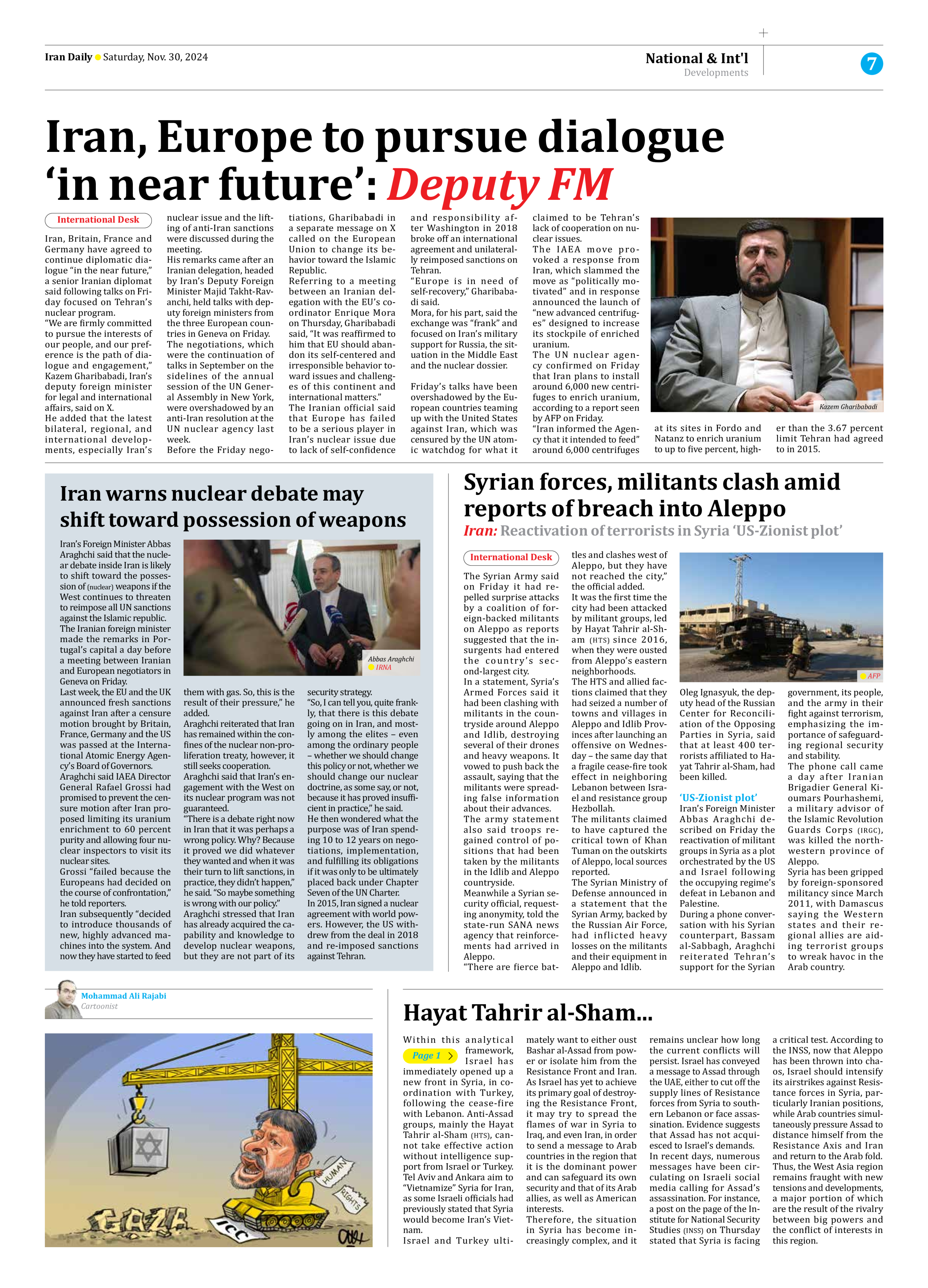
Copy in clipboard...
Iran warns nuclear debate may shift toward possession of weapons
The Iranian foreign minister made the remarks in Portugal’s capital a day before a meeting between Iranian and European negotiators in Geneva on Friday.
Last week, the EU and the UK announced fresh sanctions against Iran after a censure motion brought by Britain, France, Germany and the US was passed at the International Atomic Energy Agency’s Board of Governors.
Araghchi said IAEA Director General Rafael Grossi had promised to prevent the censure motion after Iran proposed limiting its uranium enrichment to 60 percent purity and allowing four nuclear inspectors to visit its nuclear sites.
Grossi “failed because the Europeans had decided on the course of confrontation,” he told reporters.
Iran subsequently “decided to introduce thousands of new, highly advanced machines into the system. And now they have started to feed them with gas. So, this is the result of their pressure,” he added.
Araghchi reiterated that Iran has remained within the confines of the nuclear non-proliferation treaty, however, it still seeks cooperation.
Araghchi said that Iran’s engagement with the West on its nuclear program was not guaranteed.
“There is a debate right now in Iran that it was perhaps a wrong policy. Why? Because it proved we did whatever they wanted and when it was their turn to lift sanctions, in practice, they didn’t happen,” he said. “So maybe something is wrong with our policy.”
Araghchi stressed that Iran has already acquired the capability and knowledge to develop nuclear weapons, but they are not part of its security strategy.
“So, I can tell you, quite frankly, that there is this debate going on in Iran, and mostly among the elites – even among the ordinary people – whether we should change this policy or not, whether we should change our nuclear doctrine, as some say, or not, because it has proved insufficient in practice,” he said.
He then wondered what the purpose was of Iran spending 10 to 12 years on negotiations, implementation, and fulfilling its obligations if it was only to be ultimately placed back under Chapter Seven of the UN Charter.
In 2015, Iran signed a nuclear agreement with world powers. However, the US withdrew from the deal in 2018 and re-imposed sanctions against Tehran.







